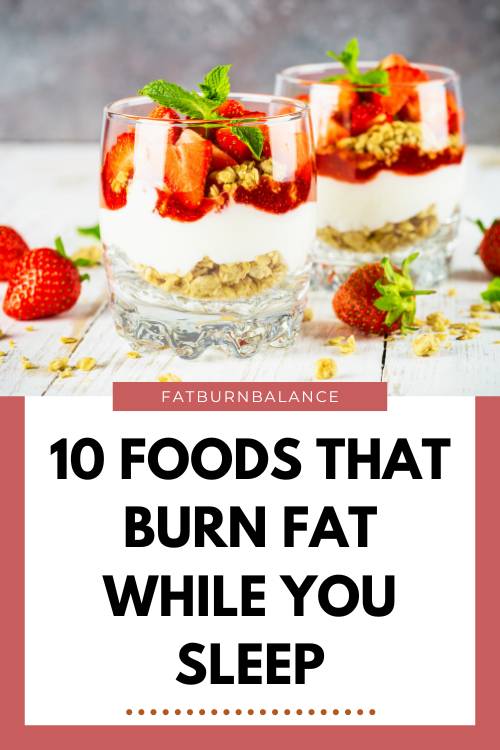Why Well Sleep, Less Stress, and Hormonal Balance Help You Lose Weight
Weight loss often feels like a simple equation of diet and exercise, but there's much more to it. The interwoven relationship between sleep, stress, and hormones plays a pivotal role in how effectively we can shed pounds. These elements form a triad that can significantly influence our weight management journey, often more than we realize.

The Importance of Quality Sleep
How Sleep Affects Metabolism
When we think about weight loss, sleep might not be the first thing that comes to mind, but it should be. Quality sleep is crucial for maintaining a healthy metabolism. During deep sleep stages, our bodies repair and regenerate, processes that are essential for a robust metabolic rate. Poor sleep can slow down metabolism, making it harder to burn calories efficiently.
Sleep and Appetite Regulation
Sleep also directly affects the hormones that regulate appetite. Ghrelin, the hunger hormone, increases when we are sleep-deprived, making us feel hungrier than usual. On the flip side, leptin, the hormone that signals satiety, decreases with lack of sleep. This imbalance leads to increased cravings and a tendency to overeat, particularly unhealthy, high-calorie foods.
Tips for Improving Sleep Quality
To enhance sleep quality, establish a consistent sleep schedule, create a calming bedtime routine, and ensure your sleeping environment is conducive to rest. Limiting caffeine and screen time before bed can also significantly improve your sleep patterns.
Establishing a Consistent Sleep Schedule
One of the fundamental steps to improve sleep quality is to establish a consistent sleep schedule. Going to bed and waking up at the same time every day, even on weekends, helps regulate your body's internal clock. This consistency makes it easier to fall asleep and wake up naturally.
Creating a Restful Sleep Environment
Your sleep environment plays a significant role in the quality of your rest. Ensure your bedroom is cool, dark, and quiet. Consider using blackout curtains to block out light and white noise machines or earplugs to drown out disruptive sounds. Investing in a comfortable mattress and pillows can also make a substantial difference.
Evening Routines for Better Sleep
Developing a calming evening routine can signal to your body that it's time to wind down. Activities such as reading a book, taking a warm bath, or practicing gentle yoga can prepare your mind and body for sleep. Avoid screens at least an hour before bed to reduce exposure to blue light, which can interfere with your sleep cycle.
The Impact of Stress on Weight
The Cortisol Connection
Stress is a ubiquitous part of modern life, but chronic stress can wreak havoc on your weight. When we're stressed, our bodies release cortisol, a hormone that, in high levels, can lead to weight gain, particularly around the abdomen. Cortisol prompts the body to store fat and can also increase cravings for sugary and fatty foods.
Emotional Eating and Stress
Stress often leads to emotional eating, where we turn to food for comfort. This can result in consuming more calories than needed, particularly from junk food. Recognizing the signs of stress-induced eating is the first step toward addressing it.
Effective Stress Management Techniques
Managing stress is essential for weight loss. Techniques such as mindfulness meditation, yoga, and deep-breathing exercises can help reduce stress levels. Additionally, regular physical activity and adequate rest play significant roles in stress management.
Understanding Stress Triggers
Identifying the sources of your stress is the first step towards managing it effectively. Keep a journal to track what situations or activities cause you stress. Once you understand your triggers, you can develop strategies to avoid or cope with them.
Incorporating Mindfulness Practices
Mindfulness practices, such as meditation and deep breathing exercises, can significantly reduce stress levels. These techniques help you stay grounded in the present moment, reducing anxiety about past or future events. Even a few minutes of mindfulness each day can have a profound impact.
Physical Activities to Reduce Stress
Physical activity is a powerful stress reliever. Engaging in regular exercise, whether it's a brisk walk, a dance class, or a session at the gym, releases endorphins that boost your mood and help reduce stress. Aim for at least 30 minutes of moderate exercise most days of the week.
Hormonal Balance and Weight Management
Key Hormones Involved in Weight Regulation
Several hormones are intricately involved in weight regulation, including insulin, cortisol, thyroid hormones, and sex hormones like estrogen and testosterone. Each of these plays a specific role in how our body processes food, stores fat, and utilizes energy.
How Hormonal Imbalance Leads to Weight Gain
When our hormones are out of balance, it can lead to weight gain. For example, insulin resistance can cause the body to store more fat, and low thyroid hormone levels can slow down metabolism. Imbalances in estrogen and testosterone can also affect where and how the body stores fat.
Strategies for Achieving Hormonal Balance
Achieving hormonal balance involves a holistic approach, including a balanced diet, regular exercise, adequate sleep, and stress management. Incorporating healthy fats, reducing sugar intake, and eating a variety of nutrient-dense foods can support hormonal health.
Nutritional Strategies for Hormonal Balance
What you eat has a direct impact on your hormonal health. Consuming a balanced diet rich in whole foods can support hormonal balance. Include plenty of fruits, vegetables, lean proteins, and healthy fats. Avoid processed foods and sugars that can disrupt hormonal function.
The Role of Regular Exercise
Regular physical activity is crucial for maintaining hormonal balance. Exercise helps regulate insulin levels, boost metabolism, and reduce stress hormones. A mix of cardio, strength training, and flexibility exercises can provide comprehensive benefits.
Avoiding Endocrine Disruptors
Endocrine disruptors are chemicals that can interfere with your hormonal system. They are found in many household products, including plastics, personal care items, and pesticides. Opt for natural or organic products whenever possible, and avoid using plastic containers for food storage, especially in the microwave.
The Synergy Between Sleep, Stress Reduction, and Hormones
How Sleep and Stress Interact to Influence Hormones
Sleep and stress are deeply interconnected with hormonal health. Poor sleep can increase stress levels, while high stress can disrupt sleep patterns, creating a vicious cycle. This interplay can exacerbate hormonal imbalances, making weight loss more challenging.
The Feedback Loop: Balanced Hormones Improve Sleep and Reduce Stress
Balanced hormones can enhance sleep quality and reduce stress, creating a positive feedback loop. When your hormones are in harmony, you are more likely to experience restful sleep and lower stress levels, both of which are critical for effective weight management.
Practical Tips for Integrating Better Sleep, Stress Management, and Hormonal Health into Daily Life
Creating a Balanced Lifestyle
Creating a balanced lifestyle is key to maintaining healthy weight. Focus on integrating practices that support all three aspects: sleep, stress management, and hormonal health. This includes regular physical activity, a balanced diet, and mindfulness practices.
Simple Daily Habits for Long-Term Success
Incorporate simple habits into your daily routine to support long-term success. These can include setting a regular bedtime, practicing deep-breathing exercises, and eating balanced meals. Consistency is crucial, and small, daily actions can lead to significant, lasting changes.
Conclusion
The interplay between sleep, stress, and hormonal balance is a powerful determinant in the journey of weight loss. By prioritizing quality sleep, managing stress effectively, and maintaining hormonal balance, you can create a robust foundation for achieving and sustaining your weight loss goals. Embrace these elements, and you'll find that losing weight becomes a more attainable and holistic process.




